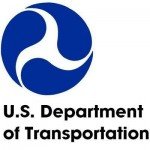Are you in pursuit of a safer workplace?
Companies nationwide are ramping up their implementation of breath alcohol testing programs to help reduce accidents and improve workplace safety.
But it’s not as simple as purchasing a testing device and having the boss conduct random screenings. The person administering the test needs the proper training, both to comply with government regulations and to give trainees the confidence they need to successfully conduct tests and manage a testing program at work.
The U.S. Department of Transportation is one of several agencies that regulates breath-alcohol testing programs as a public safety measure. Its Breath Alcohol Technician curriculum is often used by other industries to increase workplace safety. Certification through the program requires in-person training.
 The DOT regulates such industries as aviation, trucking, railroad, mass transit, pipeline and maritime industries. Other governing bodies with workplace safety oversight include the Nuclear Regulatory Commission, the Department of Energy and the United States Coast Guard.
The DOT regulates such industries as aviation, trucking, railroad, mass transit, pipeline and maritime industries. Other governing bodies with workplace safety oversight include the Nuclear Regulatory Commission, the Department of Energy and the United States Coast Guard.
Rich Bosman, Bostec’s president, is a former law enforcement officer. He’s also an Intoximeters-certified Master Trainer, traveling throughout the Pacific Northwest and beyond to instruct organizations and individuals on the use of Intoximeters equipment. He trains extensively throughout Washington, Oregon, Idaho and Alaska, and he’ll also travel outside those areas when the need arises.
Bosman offers a number of training options. The most popular are the Breath Alcohol Technician (BAT) operator classes for the RBTIV and the new RBTVXL, and the BAT Instructor classes for those instruments. Other classes include the BAT and Instructor classes for the ASIV w/memory, the ASIV@Work and the Alcomonitor CC.
Bosman’s trainings consist of two parts: A Rules and Regulations component that teaches what’s allowed — and not allowed — by law, and an Instrument Proficiency component that tests an individual’s ability to accurately run a test and correctly handle a positive result. The second component also includes a series of mock tests, in which trainees conduct tests on live subjects using their own equipment. These mock tests must be supervised by a qualified test instructor. Trainees also will be trained in correctly calibrating their instruments.
Only certified Master Trainers, such as Bosman, are allowed by Intoximeters to offer training for calibration technicians.
For more information on Bostec’s workplace safety training course offerings, or to set up a training session, contact Bostec Inc. at (360) 354-3325 or send an email to bostec@bostec.com.

